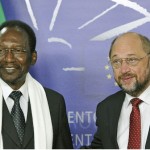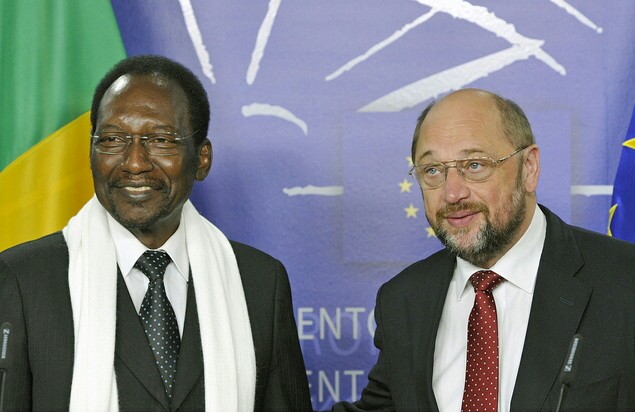
Meeting in Brussels to discuss Mali recovery, Maghreb leaders seized the opportunity to call attention to Sahel security concerns.
One-hundred eight countries and international bodies gathered in Brussels last week for a conference on rebuilding Mali, pledging 3.2 million euros as financial aid.
The European Union was the biggest donor, providing over 500 million euros, followed by the World Bank and the Islamic Development Bank with 250 million euros each, and France with 280 million euros.
Participants in the May 15th summit discussed means to improve security, democracy and development in the Sahel country.
They also addressed ways of fighting terrorism in the Sahel and Maghreb regions.
“Morocco is committed to making Mali and the total area of the Sahel-Sahara within its diplomatic priorities.” Moroccan Prime Minister Abdellilah Benkirane told the Brussels participants.
Morocco will contribute five million dollars for the reconstruction and development of the state of Mali, he added. The stability and security of Mali is paramount to that of the entire Sahel-Sahara region, Benkirane noted.
Mauritanian President Mohamed Ould Abdel Aziz told participants about his country’s experience. He praised European efforts in creating the “Security and Development” strategy in the Sahel.
“This summit… will sustain decisive military successes achieved on the ground, but also and more importantly, consolidate them through an inclusive and consensual political process capable of guarantying permanently the hoped return of Mali to peace and stability,” the Mauritanian head of state said.
“It has long been recognised that, in logic and in essence, the phenomena of terrorism and organised crime ignore state borders, incapacitating state attempts at containment,” he noted.
Addressing terrorism certainly requires a security response, he added, “but beyond that, no viable treatment can be conceived outside appropriate economic, social and political dimensions… It is this integrated approach that we are adopting in Mauritania.”
Ould Abdel Aziz explained how Mauritania focuses on promoting “an authentic Islam” through debates and continuous awareness.
But Mauritania still faces the threat of terrorism.
On May 14th, police officer Abdallahi Ould Mohamed Ghailani was sentenced to ten years in prison for having served as a “liaison” between members of Al-Qaeda in the Islamic Maghreb (AQIM) and prisoners serving sentences of terrorism.
Five days later, Ansar al-Din spokesman Senda Ould Bouamama surrendered to the Mauritanian armed forces in Bassiknou, to the east on the border with Mali.
In a May 15th hearing before the foreign affairs, defence and religious endowments committee at the House of Representatives, Moroccan Minister of Foreign Affairs and Co-operation Saad Eddine El Othmani discussed security issues his country is confronting.
Terrorism has “become a direct threat to the countries of the Maghreb Union to which Morocco belongs,” El Othmani said.
The situation is further exacerbated in Mali due to the increase of armed militias linked to al-Qaeda, he noted.
“The security of Maghreb countries is linked to stability and security in the South,” he concluded.







